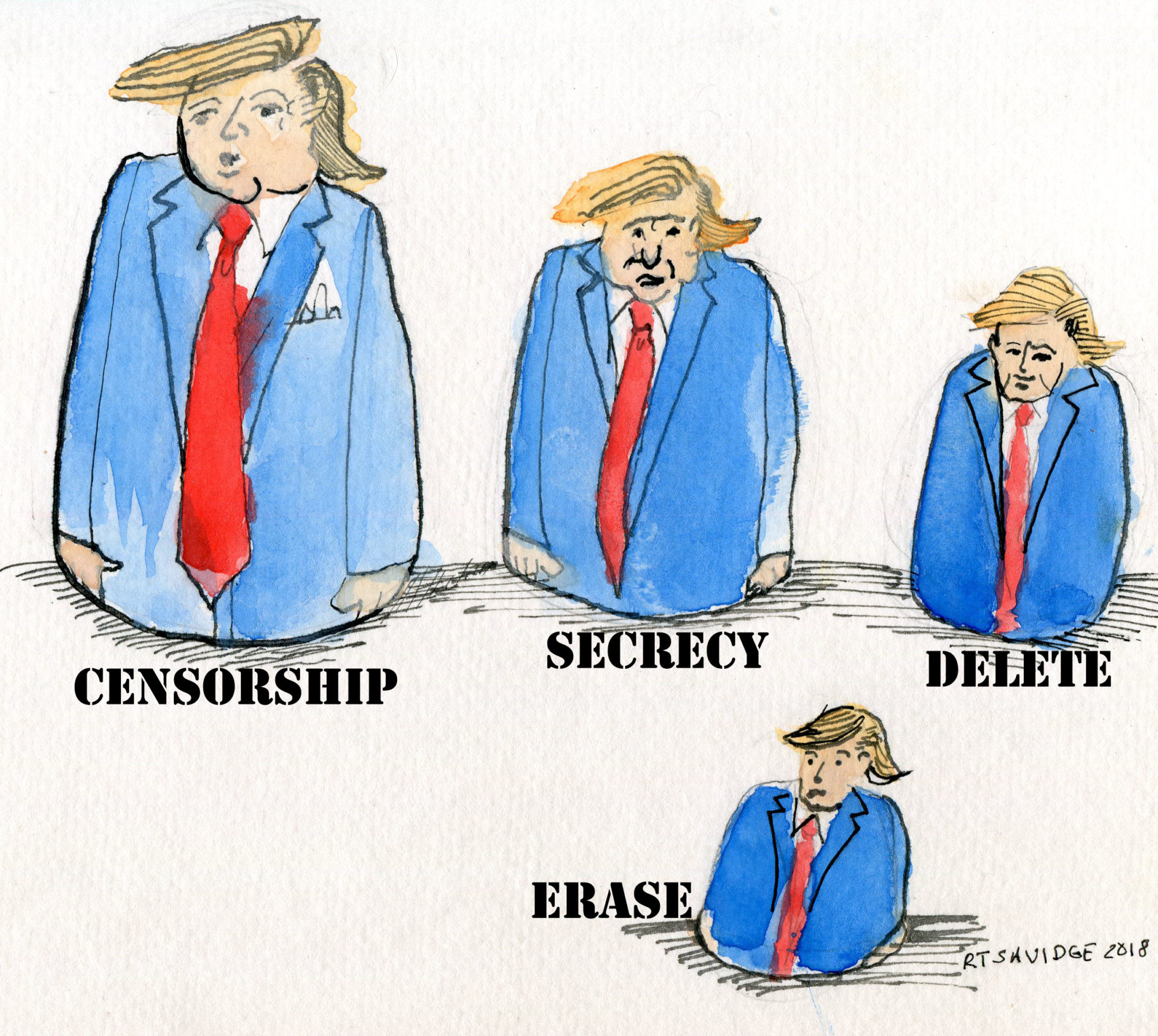2018 Year In Review: Corporate Presidency Project
Digging Deep to Uncover Corporate Influence
By Alan Zibel

President Donald Trump has turned over the U.S. government to an army of officials who previously worked for or represented corporate interests. While in office, these officials continue to carry water for big business.
Over the past year, Public Citizen’s Corporate Presidency Project has worked tirelessly to expose the inner workings of the federal government under Trump and detail the influence of former corporate executives, lobbyists and lawyers. Our researchers have combed public documents and pieced together data from a variety of sources. The resulting reports have gained widespread coverage from The Nation, the Associated Press, The Washington Post, The Wall Street Journal, McClatchy and other outlets.
We repeatedly have exposed how Trump’s appointees have pushed an overtly pro-corporate agenda, and we have explored the influence of corporate insiders on several specific sectors of government. We revealed that:
- As of March 2018, 76 senior Trump administration lawyers previously represented companies with business before the government or worked in the same field they now oversee. Many lawyers previously did legal work and lobbying for BP, Ford Motor Co., Verizon, Koch Industries and many others.
- Trump has staffed health agencies with a dozen high-ranking officials with deep industry ties, including the leaders of the U.S. Department of Health and Human Services and the U.S. Food and Drug Administration. Alumni of the oil, gas and auto industries are widespread throughout the Trump administration.
- In 11 of 12 agencies led by a Trump administration official for most of 2017, monetary penalties imposed on corporate violators plummeted. Total penalties sank by more 90 percent at the U.S. Department of Justice and 94 percent at the U.S. Environmental Protection Agency.
- Six groups funded by dozens of ultra-wealthy donors have raised more than $50 million to support Donald Trump and his agenda since his inauguration. Our analysis of Federal Election Commission data found that since the start of 2017, pro-Trump groups had raised $54.4 million from 136 megacontributors who donated at least $100,000 each, with an average contribution of nearly $400,000.
- Corporate executives strongly condemned the president’s bigoted comments on the violence in Charlottesville, Virginia in 2017 but were still perfectly willing to meet with him. In the 12 months after Charlottesville, we found that more than 100 corporate leaders from 91 businesses flocked to the president’s side.
We also catalogued numerous ways in which the Trump administration has squelched information it considers inconvenient, typically to the benefit of big corporations. In one report, we detailed how the Trump administration failed to get input from scientists and other experts and suppressed studies that contradicted its preferred positions on several big business priorities.
Watchdogging Trump’s conflicts
Trump’s sprawling set of businesses – and his refusal to divest his financial interests in his hotels, golf courses, restaurants and real estate developments around the world – has resulted in previously unimaginable conflicts. Public Citizen has kept a close watch over who is spending money at Trump properties, in June documenting 204 instances of trade groups, companies, religious groups, charities, foreign governments, interest groups and political candidates staying in Trump properties or spending money there.
This tally was more than triple what we counted in our first look at the issue in January 2018. Examples ranged from the American Petroleum Institute to the Billy Graham Evangelistic Association to a conference for the electronic cigarette industry.
Public Citizen also compiled all known records of political and federal taxpayer spending at Trump properties and businesses in the U.S. We found that Trump’s U.S. businesses have raked in $15.1 million in revenue from political groups as well as federal agencies during his campaign and presidency. About 90 percent of the spending, or $13.2 million, came from Trump’s own campaign.
- We explored the for-profit college and student loan industry’s stranglehold on Education Secretary Betsy Devos in a report that analyzed DeVos’ efforts to undo student protections enacted under the Obama administration.
- We took on the fuzzy math used by the Trump administration to justify its reckless regulatory rollbacks. We found that many rules threatened by the administration would benefit the economy by promoting public health, energy efficiency and consumer protection. Of 13 rules repealed, delayed or targeted for repeal by the Trump administration, Public Citizen found that more than $2.1 trillion in economic benefits, would be lost from 2020 through 2040 if the government were to erase the rules or enact toothless replacements. These at-risk benefits amount to $836 per year for every U.S. household.
- We studied how the Trump administration has withdrawn or paused more than 1,500 rulemakings, vastly exceeding the number under President Barack Obama at the same period of his administration.
- We found that Scott Angelle, a Louisiana politician hired to run the federal agency that regulates oil wells, received campaign contributions from at least 17 percent of the companies penalized by the federal agency he now oversees.